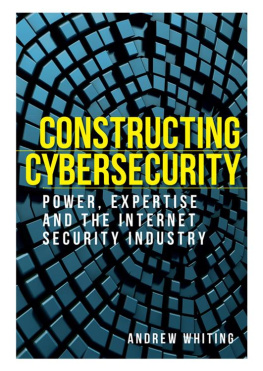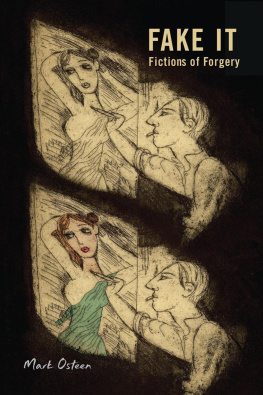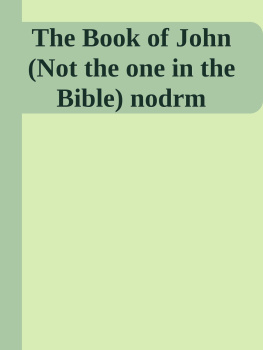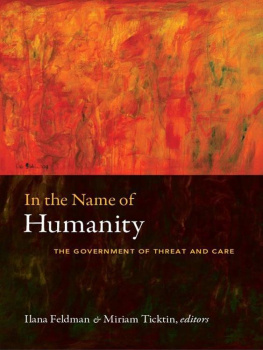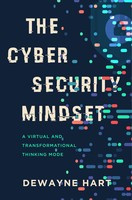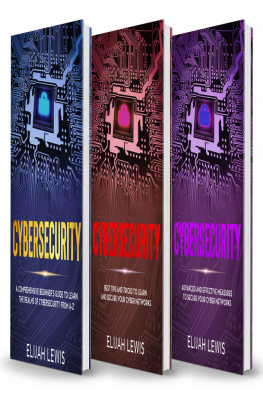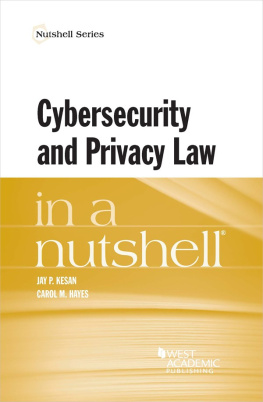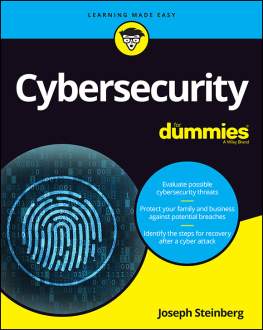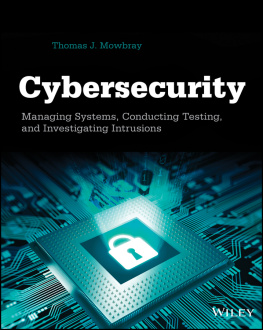Unknown - Constructing cybersecurity
Here you can read online Unknown - Constructing cybersecurity full text of the book (entire story) in english for free. Download pdf and epub, get meaning, cover and reviews about this ebook. genre: Politics. Description of the work, (preface) as well as reviews are available. Best literature library LitArk.com created for fans of good reading and offers a wide selection of genres:
Romance novel
Science fiction
Adventure
Detective
Science
History
Home and family
Prose
Art
Politics
Computer
Non-fiction
Religion
Business
Children
Humor
Choose a favorite category and find really read worthwhile books. Enjoy immersion in the world of imagination, feel the emotions of the characters or learn something new for yourself, make an fascinating discovery.
Constructing cybersecurity: summary, description and annotation
We offer to read an annotation, description, summary or preface (depends on what the author of the book "Constructing cybersecurity" wrote himself). If you haven't found the necessary information about the book — write in the comments, we will try to find it.
Unknown: author's other books
Who wrote Constructing cybersecurity? Find out the surname, the name of the author of the book and a list of all author's works by series.
Constructing cybersecurity — read online for free the complete book (whole text) full work
Below is the text of the book, divided by pages. System saving the place of the last page read, allows you to conveniently read the book "Constructing cybersecurity" online for free, without having to search again every time where you left off. Put a bookmark, and you can go to the page where you finished reading at any time.
Font size:
Interval:
Bookmark:


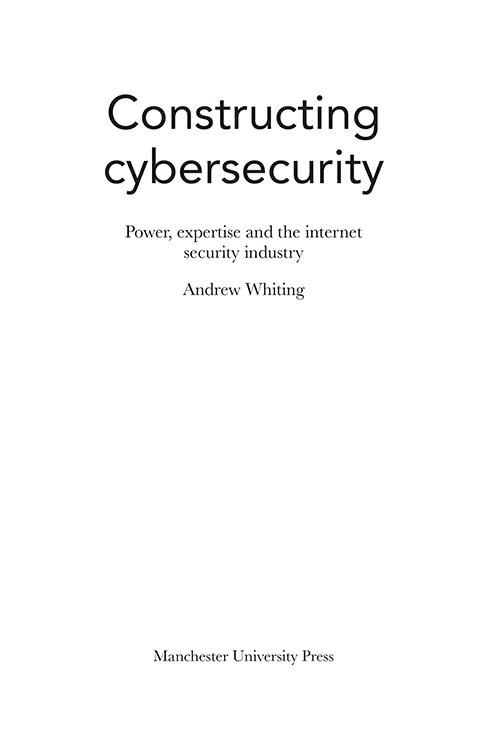 Copyright Andrew Whiting 2020 The right of Andrew Whiting to be identified as the author of this work has been asserted by him in accordance with the Copyright, Designs and Patents Act 1988. Published by Manchester University Press Altrincham Street, Manchester M1 7JA www.manchesteruniversitypress.co.uk British Library Cataloguing-in-Publication Data A catalogue record for this book is available from the British Library ISBN 978 1 5261 2332 9 hardback First published 2020 The publisher has no responsibility for the persistence or accuracy of URLs for any external or third-party internet websites referred to in this book, and does not guarantee that any content on such websites is, or will remain, accurate or appropriate. Typeset by Sunrise Setting Ltd, Brixham Contents Acknowledgements
Copyright Andrew Whiting 2020 The right of Andrew Whiting to be identified as the author of this work has been asserted by him in accordance with the Copyright, Designs and Patents Act 1988. Published by Manchester University Press Altrincham Street, Manchester M1 7JA www.manchesteruniversitypress.co.uk British Library Cataloguing-in-Publication Data A catalogue record for this book is available from the British Library ISBN 978 1 5261 2332 9 hardback First published 2020 The publisher has no responsibility for the persistence or accuracy of URLs for any external or third-party internet websites referred to in this book, and does not guarantee that any content on such websites is, or will remain, accurate or appropriate. Typeset by Sunrise Setting Ltd, Brixham Contents Acknowledgements
Having arrived in Birmingham, I have been lucky to meet and work alongside a host of colleagues who have challenged my thinking, taken the time to discuss my ideas with me when I felt at an impasse and motivated me to keep going in the more brutal moments of the writing process. Harriet Cutler, Gary Hazeldine, Jill Molloy and Sarah Pemberton deserve particular mention in this regard. I am grateful first and foremost for their friendship but am also indebted to them for their advice and guidance, whether this came in the corridors of the Curzon building or around a table in the Hare and Hounds. I would like to thank Jonathan de Peyer and Rob Byron at Manchester University Press for their patience and professionalism throughout the process of producing the manuscript. I am also grateful for the comments I received from three anonymous reviewers. Each of these gave me something different to consider but all were very valuable, and in responding to their feedback the manuscript is undoubtedly of a higher quality than it would have been without them having taken the time to read and respond to my writing.
I am both very lucky and immensely grateful to have such great friends, and it is probably the case that people like George and Pete do not realise how important they have been in relation to this book. However, the ability to step away from work to relax in good company or share a laugh helped put the project into perspective and, whether consciously or not, often provided some distance that allowed me to return refreshed and ready to go again. Two final and very important thanks go, firstly, to Annette for her patience, compassion and unwavering support in this and all things. It was not the case that you always asked for my streams of consciousness when I was in the midst of putting this book together, but your willingness to listen and your reassurance were something I was always very thankful for. Finally, as with my friends, it is not lost on me how lucky I am to have such a supportive and encouraging family. It would be impossible to express here the full extent of my appreciation for what my brother Chris and my parents Linda and Richard have done for me, so perhaps it is best just to say that getting to this point would not have been possible without their sacrifices and support.
Introduction When Bill Gates stepped down as the head of Microsoft in 2008, he said that when he and the late Paul Allen had started the company they had dreamt about putting a computer in every home (Beaumont, 2008). Much has changed since the mid-1970s, when this ambitious vision was set out, but, with 83.2 per cent of households in the developed world now containing a computer, it appears self-evident that the late twentieth and the twenty-first centuries have seen a rapid process of computerisation unfold (ITU, 2018). Alongside the proliferation of affordable computers we have also witnessed the emergence and spread of the internet and the World Wide Web, a development that has brought with it huge increases in interconnectivity at the national and international, public and private levels (Harknett, 2003, p. 18). On this issue there are clear discrepancies between the developed and developing world, with estimated internet usage standing at 80.9 per cent and 45.3 per cent respectively (ITU, 2018). However, the global trend remains one of increased digital connectivity and has subsequently produced significant societal change.
The result of these developments has been swathes of the globe in which networked computer technology is a firmly established feature and where little remains untouched by its influence: consumerism, entertainment, communication, business, everything from managing your finances online to logging exercise via wearable technology. There are near constant reminders of the information ages presence, in our pockets, on our wrists, in our homes, at work, and this ever present feature in our daily lives is only part of the story of the computer revolution. The process of computerisation has produced change at all levels a dizzying proliferation of technology and platforms has sprawled throughout society, empowering actors and institutions, allowing for greater autonomy and independence but also collaboration and cooperation. The voice of the individual can be louder than ever, the reach of enterprise wider than ever and the functioning of the State similarly amplified. A question that has frequently been asked about this transformation is whether it should be viewed in a positive light or not. Despite all of the observable benefits of global connectivity, there remains scepticism around issues such as the (often anonymous) unsavoury or illegal behaviour that this connectivity has empowered, the infringements upon the privacy of individuals in the form of big data collection or systems of mass-surveillance and the spread of misinformation.
Put another way, issues of (in)security are not far detached from questions around the societal value of computers and computer networks. How we conceptualise security relies on assumptions about security, including deciding whom or what requires securing (Jarvis and Holland, 2015). However, if we focus momentarily on the most commonly cited referent object (the state) we see how national security strategies consistently reproduce this idea that computerisation is a double edged sword (Quigley et al., 2015, p. 108), where the tremendous societal and economic benefits it offers must be considered alongside the risks and drawbacks. National cybersecurity strategies the world over reveal the commonality of this perceived trade-off: The broad application of information technologies and the rise and development of cyberspace has extremely greatly stimulated economic and social flourishing and progress, but at the same time, has also brought new security risks and challenges. (China Copyright and Media, 2016) The UK is one of the worlds leading digital nations.
Next pageFont size:
Interval:
Bookmark:
Similar books «Constructing cybersecurity»
Look at similar books to Constructing cybersecurity. We have selected literature similar in name and meaning in the hope of providing readers with more options to find new, interesting, not yet read works.
Discussion, reviews of the book Constructing cybersecurity and just readers' own opinions. Leave your comments, write what you think about the work, its meaning or the main characters. Specify what exactly you liked and what you didn't like, and why you think so.

